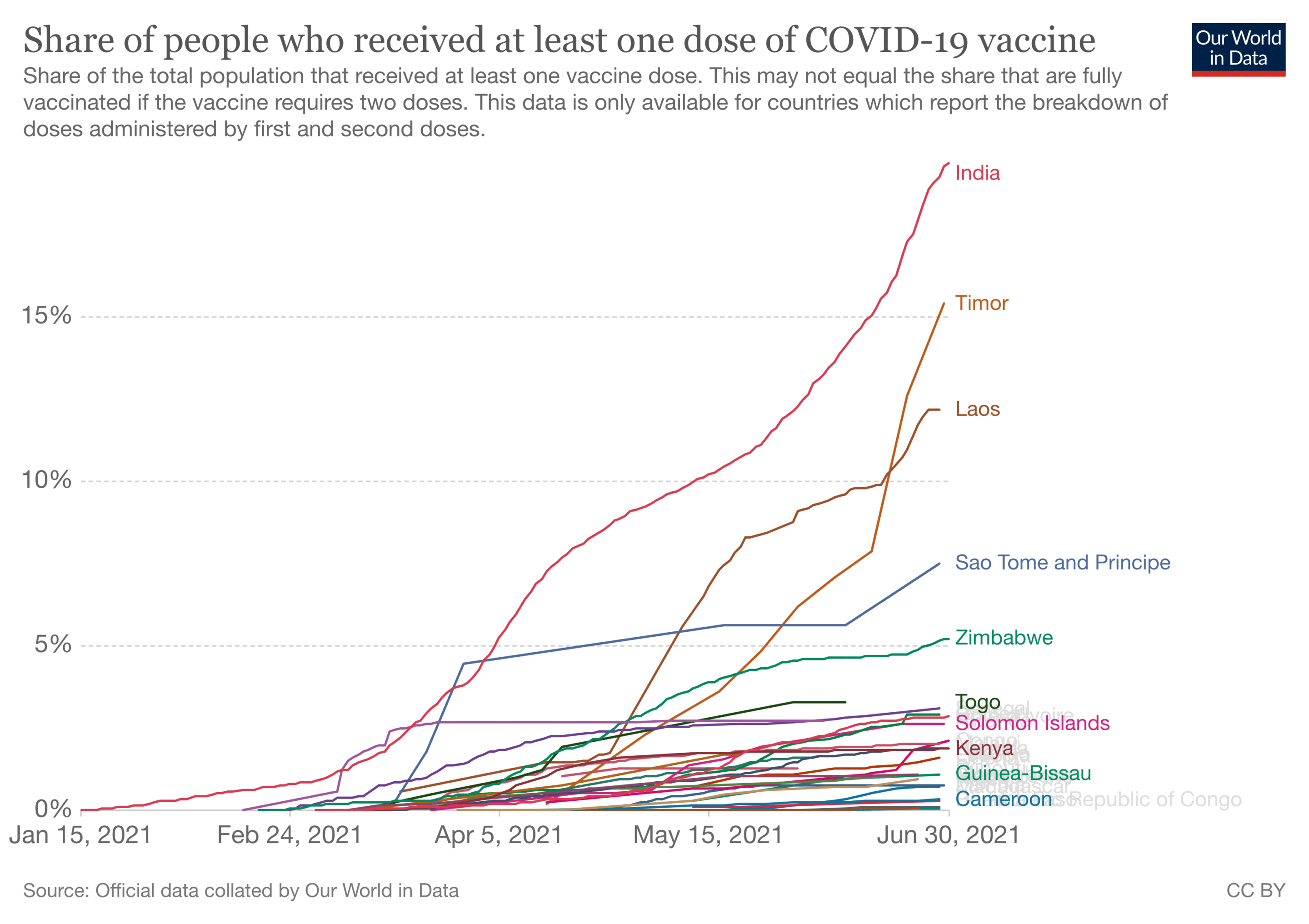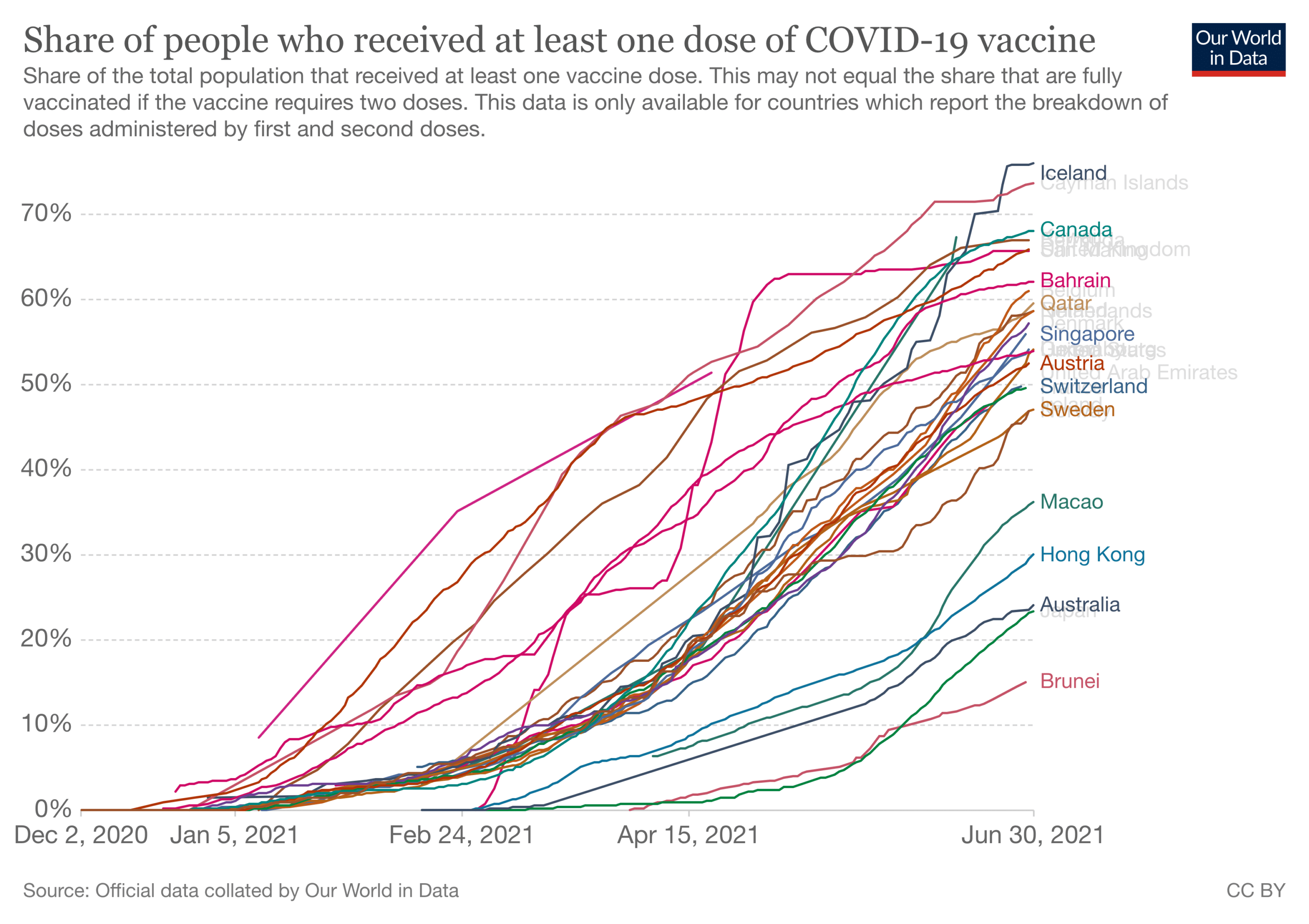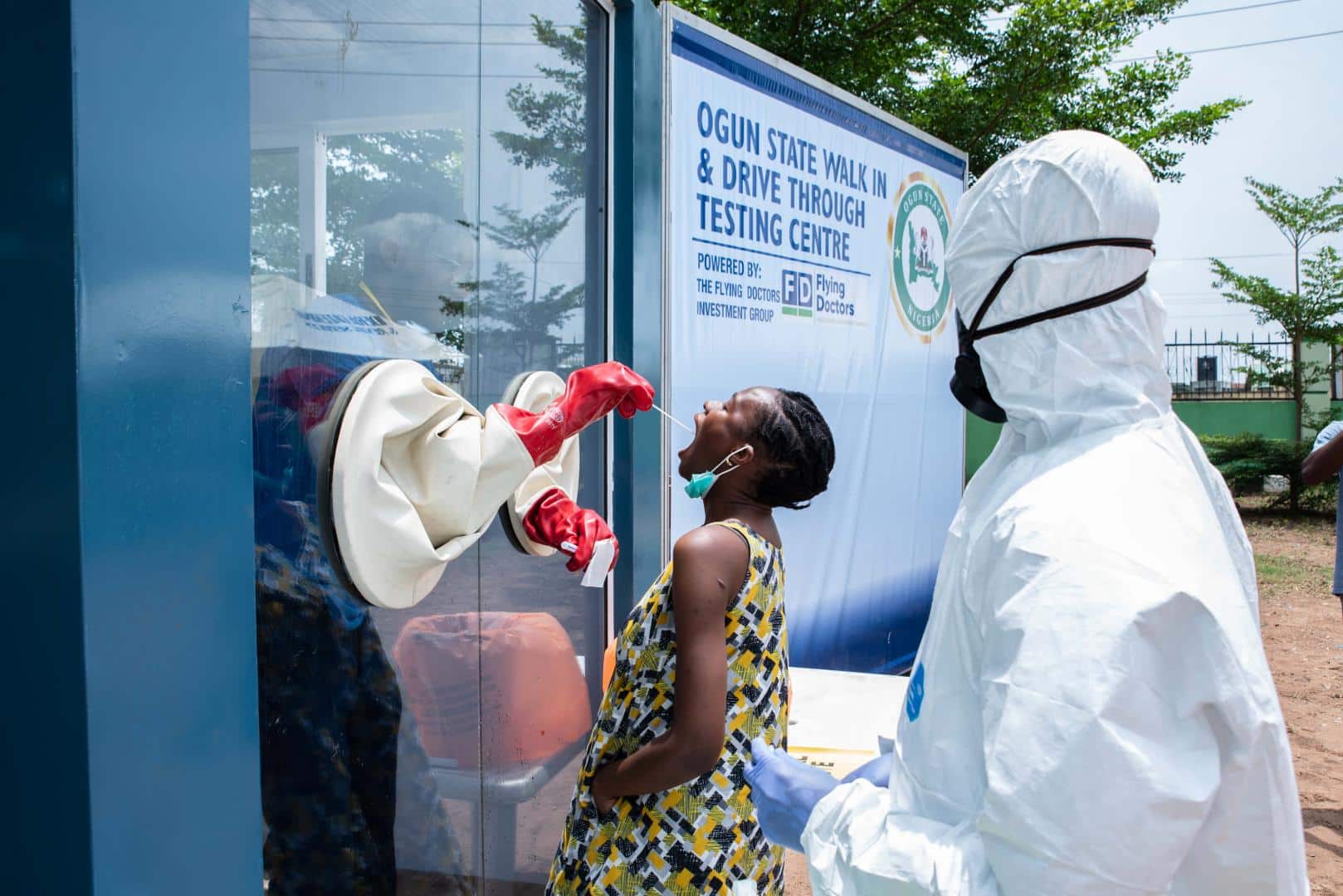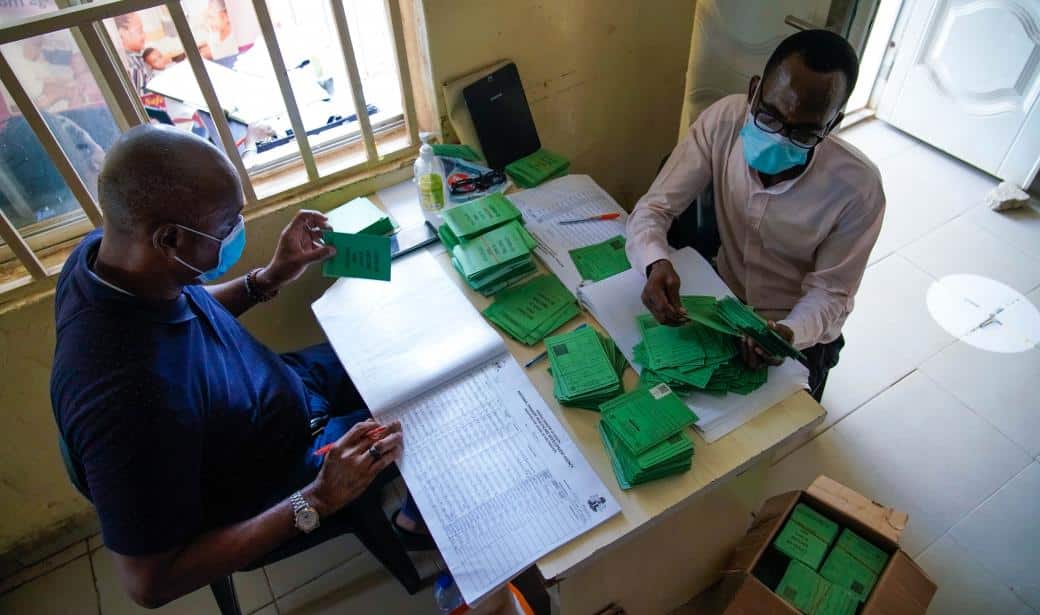While the roll-out of the COVID-19 vaccine has been fast and widespread in many rich countries, it is still very low in the world’s poorest nations.
More than 3 billion doses of the various vaccines have been administered across the globe, but only 0.9 per cent of people in low income countries have received their first dose.
The problem is clear to see when you compare the proportion of the populations vaccinated in the richest 30 countries by GDP with that in the countries which have the highest levels of poverty.

Vaccine penetration is very low in the 30 countries which have the highest proportion of people living in extreme poverty.

The 30 richest countries by GDP have vaccinated higher proportions of their populations.
A pledge was given at the recent G7 summit committing the member states to provide 870 million additional doses to support equitable access to vaccines in 2021 and 2022, with the aim to deliver at least half by the end of 2021. They will be distributed by the WHO’s COVAX vaccine distribution body.
Concerned about the ongoing disparity between rich and poor nations in their battle against coronavirus, the World Bank Group, International Monetary Fund, World Health Organization, and World Trade Organization have come together to form a Task Force on COVID-19 Vaccines, Therapeutics and Diagnostics for Developing Countries.

Efforts to test and vaccinate are being made across the world but the G20 has been urged to do more. Photo courtesy of the World Health Organization.
The Task Force has called on G20 countries to step up their contributions of vaccines and funding, while also reducing barriers to export. A statement at the end of the group’s first meeting says: “As many countries are struggling with new variants and a third wave of COVID-19 infections, accelerating access to vaccines becomes even more critical to ending the pandemic everywhere and achieving broad-based growth. We are deeply concerned about the limited vaccines, therapeutics, diagnostics, and support for deliveries available to developing countries. Urgent action is needed now to arrest the rising human toll due to the pandemic, and to halt further divergence in the economic recovery between advanced economies and the rest.”





